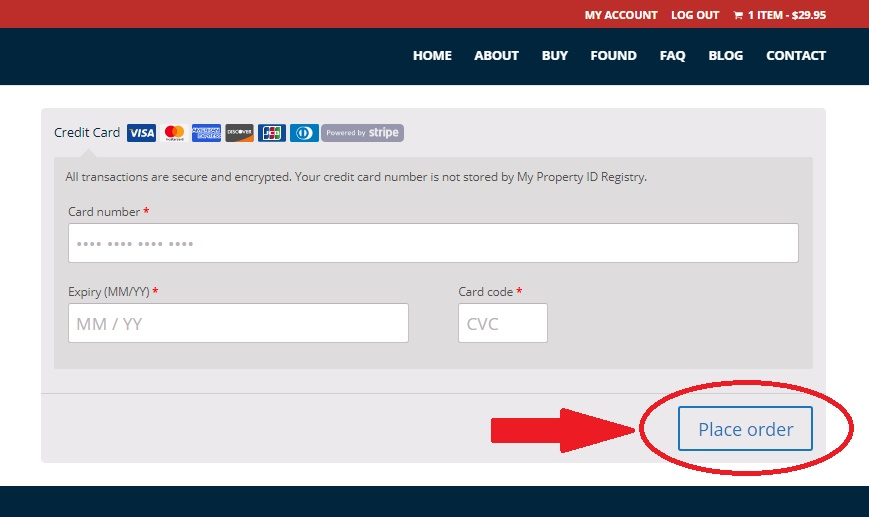The chain of custody begins when you submit your order —
The chain of custody can be used to solve crimes. When I opened my commercial bank account, my banker asked me to describe the nature of my business. He then opened up about having his branch robbed at gunpoint multiple times and the robbers being caught. Amazingly, even with cameras and eye witnesses, no convictions were ever made UNTIL a robber was caught with marked money.
ID tags are tied to you
Like a bank marking money, our chain-of-custody security system establishes ownership and possession the instant you place your order. The ID tags that arrive in the mail are already registered in our database and are tied to your name, address and email.
The USPS is guided by Federal law
The ID tags are delivered by the United States Postal Service (USPS). Any abuse of the ordering process by using a false name or knowingly impersonating another person and then using the USPS to complete the transaction is a Federal offense. The ID tags are like registering your car—an important legally binding link is established between you and your property with a clear record of ownership.
Operation ID is legally binding
Even the original Operation ID system, first developed in the early 1960s is legally binding. By etching your driver’s license number into your portable valuables, and then taking out a piece of paper and hand recording the make, model and serial numbers is a legal document that shows possession. Our system just takes it to the next level by migrating the process to the web and offering enhanced features.
Getting caught red-handed.
The police, in the normal course of their duties, come across suspected stolen property regularly, but it is extremely rare that there is any kind of record tying that alleged stolen property back to its rightful owners. That’s why the cops shrug their shoulders and say, “There’s nothing we can do” when you report a burglary or theft and have no serial numbers.
ID tags should not be shared
The ID tags are registered to the account holder and should not be shared. Would you give your car’s license plate and registration information to a friend? The ID tags belong to you and should be adhered to items that you have lawfully purchased or been given. Even if you share a home with someone else, unless there is some legally binding connection between the two of you, it’s not advisable to share tags.
The cops will hug you
Wanna get hugged by a cop? Partner with law enforcement by taking the proactive step of marking your property and recording the make, model and serial numbers. You wear a seat belt not because you will be involved in a crash, but just in case. The same thinking should be applied to your possessions. The police can’t help unless you do. Wanna get hugged by a cop? Partner with law enforcement.

